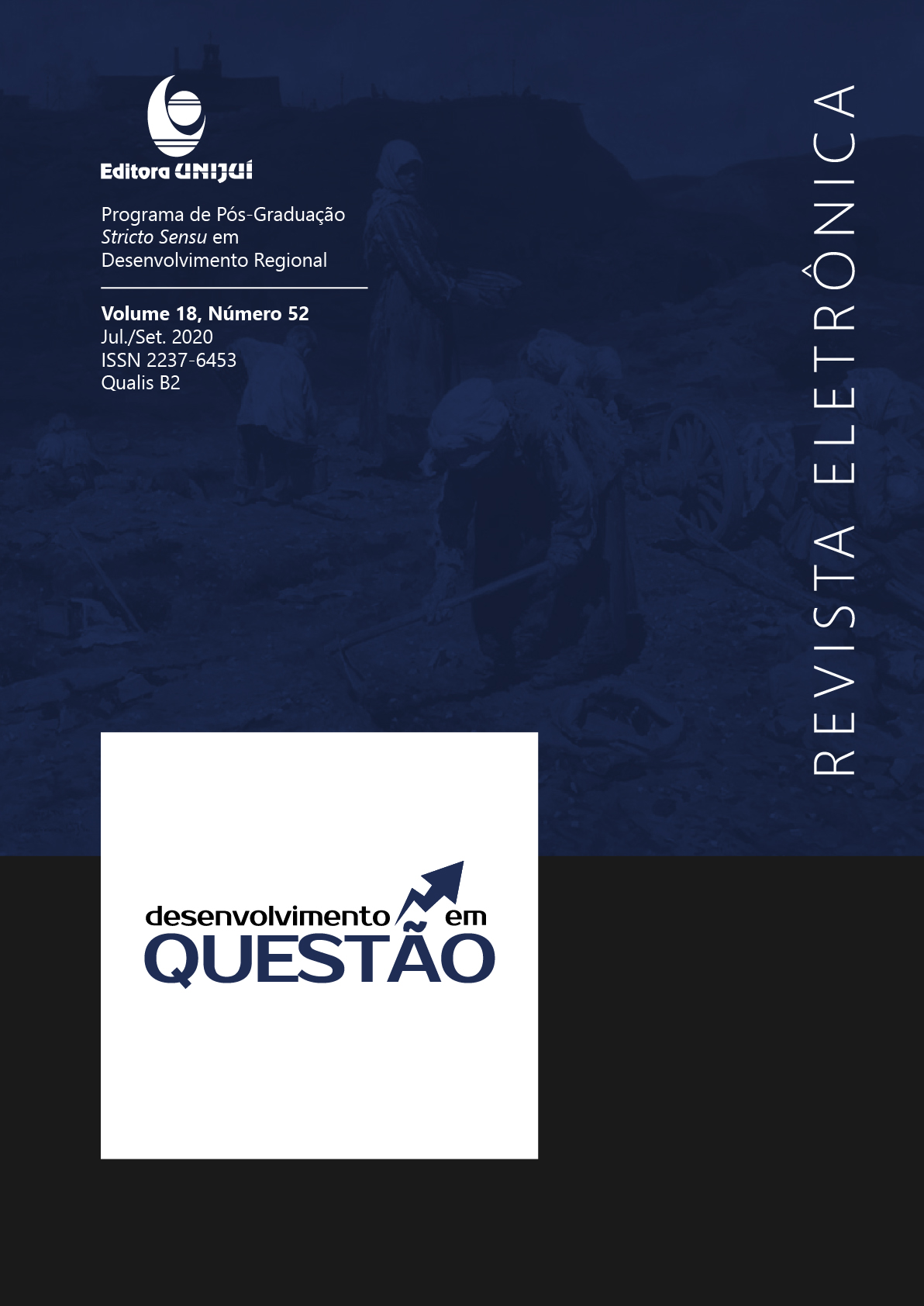PROFESSIONAL AND TECHNOLOGICAL EDUCATION FOR REGIONAL DEVELOPMENT IN BRAZIL: THE WORK OF THE FEDERAL INSTITUTE OF SANTA CATARINA
DOI:
https://doi.org/10.21527/2237-6453.2020.52.216-232Keywords:
Professional and Technological Education. Regional Development. Federal Institute of Education, Science and Technology.Abstract
The objective of this article was to analyze the work of the Federal Institutes of Education, Science and Technology (IFs) and their adherence to the role of Professional and Technological Education (EFT) in promoting regional development. For this purpose, the Western region of Santa Catarina, Southern Brazil, was used as an analytical cutout, and as a focus, the case study of the Federal Institute of Santa Catarina (IFSC), represented by the three campuses that constituted the study analysis units: Chapecó, São Miguel do Oeste and Xanxerê. To carry out the research, a predominantly qualitative approach was adopted, using bibliographic, documentary and field research (interviews, observation and questionnaires). Content Analysis was used as an analysis technique and the data were triangulated with each other and collated with the theory. The results of the research indicate that the work of the IFs distances them from the role for which they were created, reducing their contribution to the qualification of labor for the labor market, especially through the Medium Level Technical Professional Education (MTPE). It was also verified that the Brazilian educational legislation, including the Institutional Development Plan (PDI) of the IFSC, treats the TPE as an important public policy focused on regional and country development. However, the institution's internal culture, which has its roots in the historical prejudices attributed to this educational modality in Brazil, does not allow the IFSC to be consolidated as an application tool of this public policy.
Downloads
Published
How to Cite
Issue
Section
License
By publishing in Revista Desenvolvimento em Questão, authors agree to the following terms:
All works are published under the Creative Commons Attribution 4.0 International License (CC BY 4.0), which allows:
Sharing — to copy and redistribute the material in any medium or format;
Adaptation — to remix, transform, and build upon the material for any purpose, even commercially.
These permissions are irrevocable, provided that the following terms are respected:
Attribution — authors must be properly credited, a link to the license must be provided, and any changes made must be indicated.
No additional restrictions — no legal or technological measures may be applied that legally restrict others from doing anything the license permits.
Notices:
The license does not apply to elements that are in the public domain or covered by legal exceptions.
The license does not grant all necessary rights for specific uses (e.g., image rights, privacy, or moral rights).
The journal is not responsible for the opinions expressed in the articles, which are the sole responsibility of the authors. The Editor, with the support of the Editorial Board, reserves the right to suggest or request modifications when necessary.
Only original scientific articles presenting research results of interest that have not been previously published or simultaneously submitted to another journal with the same purpose will be accepted.
Mentions of trademarks or specific products are intended solely for identification purposes and do not imply any promotional relationship by the authors or the journal.
License Agreement (for articles published from 2025 onward): Authors retain the copyright to their article and grant Revista Desenvolvimento em Questão the right of first publication.











